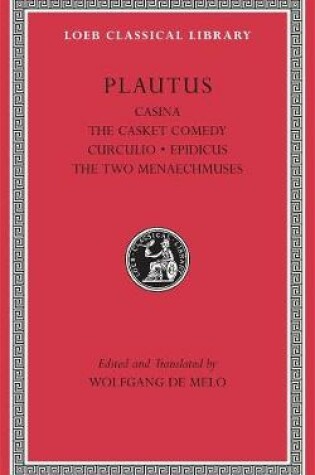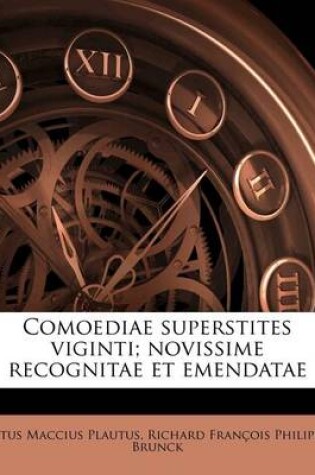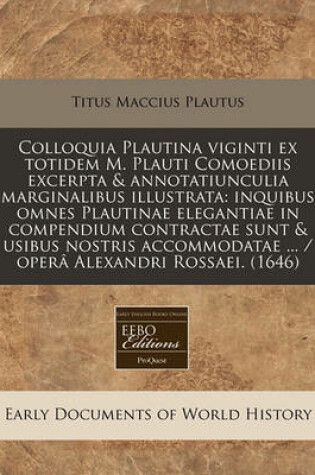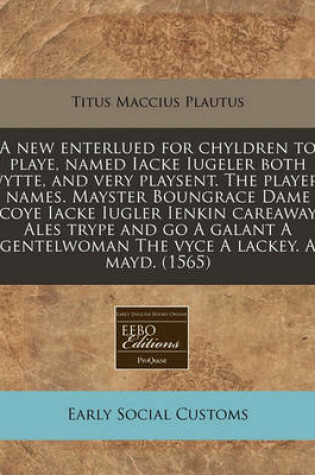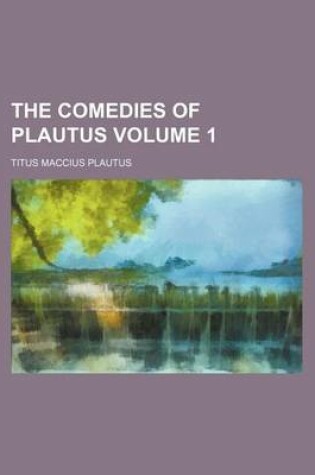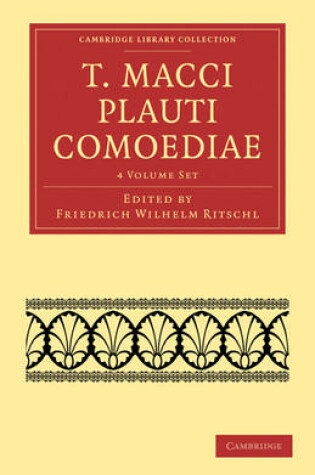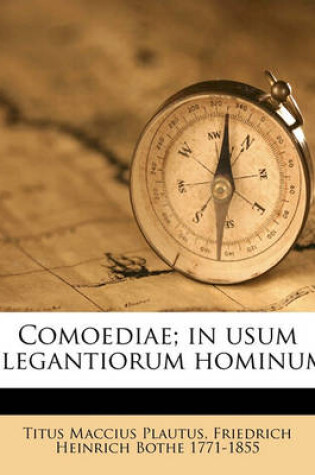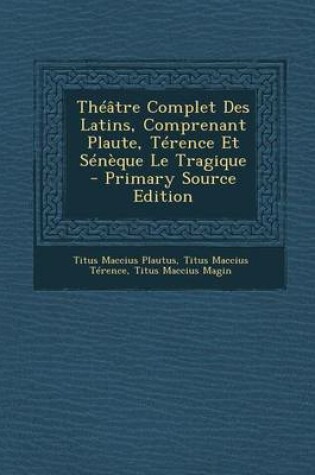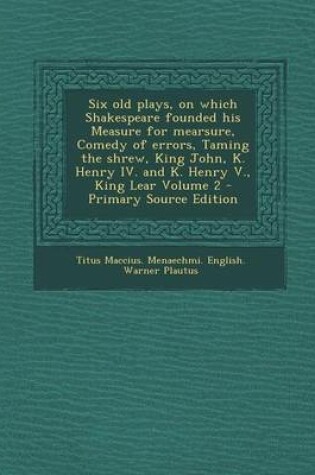Plautus, Titus Maccius (254-184 BC) was a Roman playwright, whose comedies were the most popular dramatic works of their day. He was originally an actor or clown. Twenty-one of his 130 plays survive, revealing his theatrical craftsmanship and total mastery of farce. Although his works were palliata, adaptations of Greek new comedy originals now lost, he shifted the scene to Rome and based much of the humour on Roman manners and customs. His comedy, which was broader than that of Terence, still works today. Stock characters of Plautus's plays include the bragging soldier, the miser, the old man in love, the parasite, identical twins, the wily slave, and the courtesan. Later European dramatists influenced by Plautus include Shakespeare, Jonson, Dryden, and Molière. His comedy was often based on disguises and mistaken identities; Shakespeare's The Comedy of Errors (1592) was based on Plautus's Menaechmi, about the confusions caused by a pair of long-separated identical twins. Several of his plays were combined for Stephen Sondheim's 1962 Broadway musical A Funny Thing Happened on the Way to the Forum (although only one line from Plautus was retained: "I am a parade"). Plautus was eventually forced to work in a grain mill after losing most of his theatrical earnings in unsuccessful business ventures.
